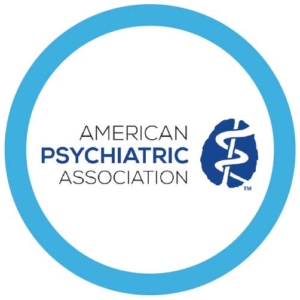How Cognitive Deficits in Schizophrenia Can Interfere With Real-World Functioning
Schizophrenia is a serious mental illness with symptoms including hallucinations, delusions, social withdrawal, apathy, and disorganized thinking and behavior. “Schizophrenia is a psychosis,” wrote the late Colorado Recovery founder Richard Warner, MD, in his influential book The Environment of Schizophrenia. “It is a severe mental disorder in which the person’s emotions, thinking, judgment, and grasp of reality are so disturbed that his or her functioning is seriously impaired.”
One of the functions seriously impaired by schizophrenia is cognitive control. “Cognitive deficits associated with schizophrenia include difficulties with attention, working memory, learning, and processing speed,” explained psychiatry professor Eugene Rubin in Psychology Today. “These deficits interfere with real-world functioning. They are associated with increased hospitalization, longer hospital stays, and decreased compliance with treatment.”
It has been known for over half a century that people with schizophrenia often perform poorly on most cognitive tests. “Significant cognitive impairment is common in schizophrenia, affecting up to 75 percent of patients,” wrote Talreja, Shah, and Kataria in their 2013 study of cognitive function in schizophrenia. “A wide range of cognitive functions are affected; particularly memory, attention, motor skills, executive function, and intelligence.”
If untreated, cognitive impairment presents “a major contributor to illness-related disability, defined as an inability to work productively and/or live independently,” wrote Professor Rubin. “Psychiatric illnesses, including schizophrenia, are among the leading causes of disability across the human lifespan.”
 A 2019 study by Zanelli, Mollon, et al. published in the American Journal of Psychiatry suggests “that while a substantial proportion of the cognitive impairment seen in adult patients with schizophrenia, as well as in other psychoses, is already present at the first episode, these patients continue to experience cognitive decline after illness onset.”
A 2019 study by Zanelli, Mollon, et al. published in the American Journal of Psychiatry suggests “that while a substantial proportion of the cognitive impairment seen in adult patients with schizophrenia, as well as in other psychoses, is already present at the first episode, these patients continue to experience cognitive decline after illness onset.”
Effective treatment needs to work against this decline. “Knowing which specific cognitive deficits an individual with schizophrenia is experiencing can assist caregivers in tailoring psychosocial management,” wrote Rubin who expects that advances in neuroscience will eventually result in an improved understanding of the nature and causes of schizophrenia. “This should lead to advances in novel drug development. Together with increased attention to psychosocial interventions, these advances should aid the development of integrated, personalized treatment approaches to improve the everyday functioning and life satisfaction of those suffering from this devastating psychiatric disorder.”
Personalized therapy to improve everyday functioning and life satisfaction as well as fewer and shorter hospitalizations are hallmarks of the treatment philosophy at Colorado Recovery. Dr. Warner considered schizophrenia a bio-psycho-social disorder significantly affected by the environment surrounding the person with the mental health condition on multiple levels.
Colorado Recovery approaches care for mental health based on a path of self-reliance through developed practiced skills. This non-institutionalized philosophy offers comprehensive levels of care supported by an expert medical and clinical team, engaging patients in increasing community participation.
Our treatment facility provides the services needed to address schizophrenia, bipolar disorder, and other serious mental illnesses which are specific to each individual. Call us at 720-218-4068 to discuss treatment options for you or the person you would like to help.

 “Art can harness the healing power within each of us and help bring us into community with one another,” wrote educator Jackie Armstrong
“Art can harness the healing power within each of us and help bring us into community with one another,” wrote educator Jackie Armstrong  Bipolar disorder (BD) is a mental illness characterized by psychosis in which a person’s ability to recognize reality and emotional responses, thinking processes, judgment, and ability to communicate are so affected that their functioning is seriously impaired. Hallucinations and delusions are common features of psychosis.
Bipolar disorder (BD) is a mental illness characterized by psychosis in which a person’s ability to recognize reality and emotional responses, thinking processes, judgment, and ability to communicate are so affected that their functioning is seriously impaired. Hallucinations and delusions are common features of psychosis.
